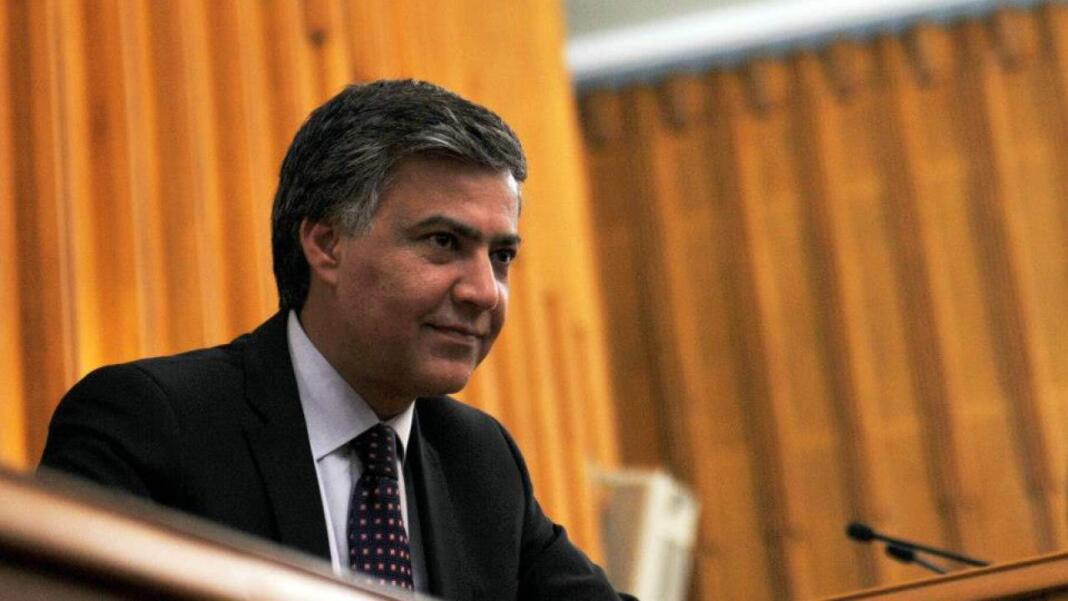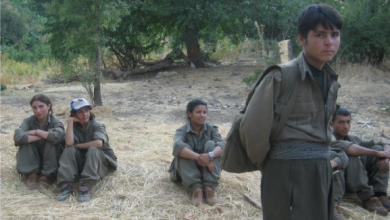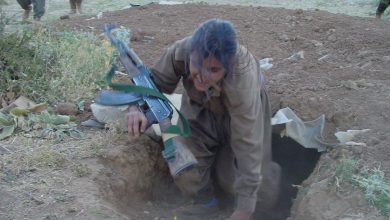As a symbolic disarmament ceremony for the PKK took place in Sulaymaniyah, Turkish officials and security experts warned against the continued activities of the organization’s regional branches. Ali Özgündüz stated, “PJAK, YPG, and PKK are three names for one goal; and until all of them are disarmed, regional security will remain at risk.”
Ali Özgündüz, a Turkish expert and legal scholar, emphasized the necessity of cooperation between Iran and Turkey to counter the YPG in Syria, pointing to the PKK’s ongoing relations with the United States and Europe, even after disarmament.
PKK commanders surrendered their weapons following Abdullah Öcalan’s declaration of the group’s dissolution and an agreement with the Turkish government. This event immediately followed Öcalan’s second statement regarding the cessation of PKK activities and the commencement of the peace process with Turkey. The location of this surrender holds significant symbolic importance, as it was where the Kurdistan Workers’ Party was founded over 40 years ago, and at that time, thousands of PKK fighters were based there. One of the key stages in the peace process, the surrender and disarmament of the group, has recently been completed. Subsequent stages involve political, legal, and judicial matters, as PKK members in Turkey and other countries face numerous legal cases that require resolution. The ceremony was held in Sulaymaniyah, and both Nechirvan Barzani and Recep Tayyip Erdoğan positively assessed this action by PKK members.
Regarding the PKK disarmament process, considered one of the most significant events in Turkish political history, we conducted an interview with Ali Özgündüz, a legal scholar and former Member of Parliament for Turkey’s Republican People’s Party. The full interview follows:
Can the official disarmament of the PKK be considered the end of a period of armed conflict, or is it merely a new tactic aimed at redefining the group’s regional role?
Özgündüz: The process, which began last October with the initiative of Mr. Bahçeli, leader of Turkey’s Nationalist Movement Party, and which the People’s Alliance called “Turkey Without Terrorism” and the Democratic Party called “Peace and Democratic Society,” can be considered the end of the armed conflict period. This is because the result of this process was the symbolic burning of weapons by a group of PKK terrorists in the rural area of Sulaymaniyah, Iraq, following Öcalan’s call, the leader of the PKK terrorist organization, and the announcement of the PKK’s dissolution through the formation of a congress.
In fact, PKK members, who now call themselves the “Peace and Democratic Society Group,” have openly declared that their future struggle will be conducted “through democratic political and legal methods” and in line with Apo’s (Abdullah Öcalan’s) call.
What is your analysis of the timing of this disarmament announcement? Why now? Did pressure from foreign powers or behind-the-scenes agreements with Ankara play a role in this decision?
Özgündüz: The PKK had long been unable to operate within Turkey. Furthermore, this terrorist organization, headquartered in Qandil Mountain, reorganized itself as the YPG, affiliated with the SDF forces, in northern Syria during the conflicts that began in 2010. With the support of the United States and Israel, this group relocated its headquarters and armed forces to Syria.
Therefore, I believe that due to regional developments, especially the presence of the YPG in northern Syria on the Turkish border—equipped with tens of thousands of trucks of ammunition by the United States, posing a serious threat to our country (Turkey)—and on the other hand, observing the instrumental use of the PKK by imperialists and Zionists, the PKK disarmament process accelerated.
Given the structural dependence of PJAK, YPG, and Iraqi branches on the PKK, do you expect these groups to also be disarmed? Is Turkey willing to differentiate between the PKK’s branches?
Özgündüz: Yes, the terrorist organization known in our country as the PKK, in Iran as Iranian Kurdistan Human Rights Watch (PJAK), and in Syria as the YPG, is in fact a single organization whose goal is to create a “Greater Kurdistan” by occupying territories from Turkey, Iran, Iraq, and Syria.
Therefore, from our (Turkey’s) perspective, all elements of this organization must be disarmed to achieve our goals.
However, in a statement issued after the meeting in Damascus between Tom Barak, the U.S. Ambassador to Turkey and Special Representative for Syria, and Mazloum Abdi and Ahmed Sara, who are recognized as YPG commanders, it was announced that the YPG and Hayat Tahrir al-Sham, which has taken control of the Syrian government, could not agree on “unifying forces,” and serious disagreements exist.
This situation indicates that the YPG will not lay down its arms. They will either join the newly formed Syrian armed forces or continue to exist as a structure similar to the Peshmerga in Iraq, as is currently happening.
This situation, of course, creates negative consequences for us and the countries in the region, as the YPG is essentially the ground force of the United States and, therefore, Israel in Syria.
What role do powers such as the United States, Russia, or some European countries play in shaping this disarmament process? Is this decision the result of international pressure or a regional deal?
Özgündüz: It is clear that the current process is being carried out entirely by the governmental partners—namely the AK Party and the Nationalist Movement Party in Turkey—as well as by Öcalan, the PKK (Qandil), and the Peoples’ Democratic Party (Dem Parti), with no other government involved.
However, this organization, which has changed its name and announced it will fight politically, will undoubtedly continue its relations and contacts with the United States, European Union countries, and regional powers in the future.
Will the disarmament process include a program for the safe return and rehabilitation of former PKK members? Or is it only focused on the operational part of the group?
Özgündüz: From now on, the legal framework for this process will be prepared by a commission to be established under the Grand National Assembly of Turkey. Efforts such as the return and reintegration of members of terrorist organizations who have not been involved in terrorist acts, as well as overlooking the departure of other terrorists to other countries, will be carried out by the relevant institutions.
It seems that the resumption of PKK activities after this stage is impossible. Even if some of its elements show a desire to continue their activities, they will not be able to establish a base or recruit militants.
However, I believe that PJAK and especially the YPG will be even more effective in fulfilling the role assigned to them by the United States and Israel. The only way to prevent this is through joint action by Turkey and Iran and the adoption of reciprocal measures.
Otherwise, the waters that are currently calm will once again be muddied by imperialist powers when conditions are favorable.






